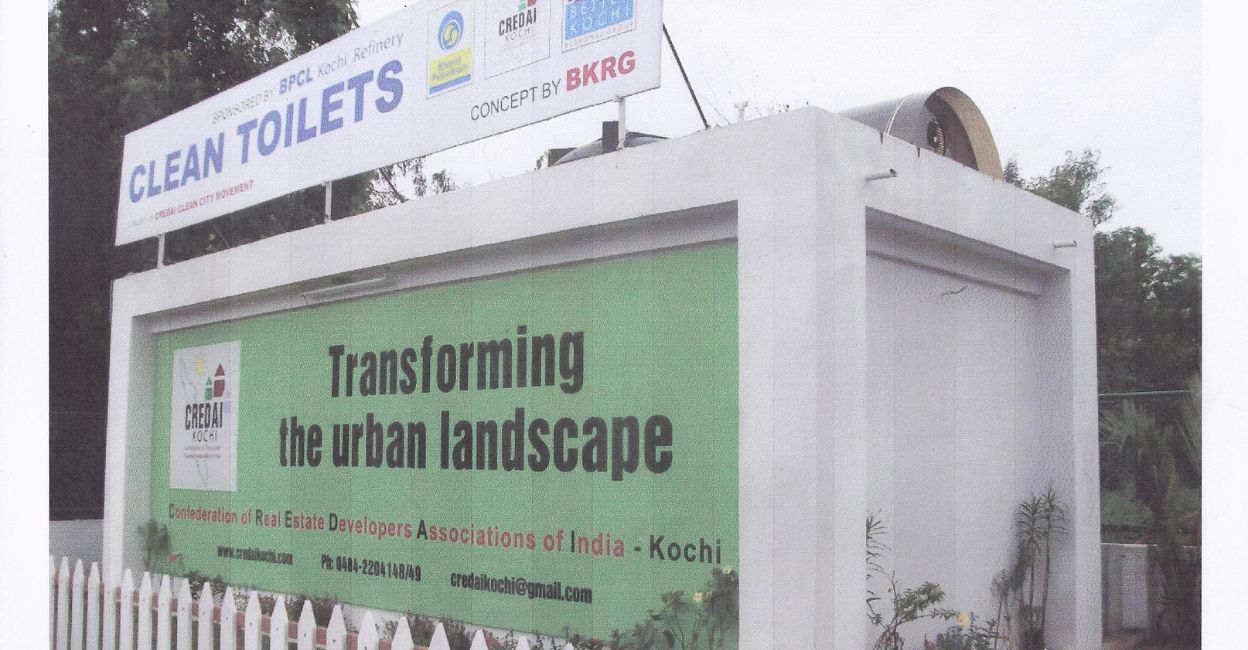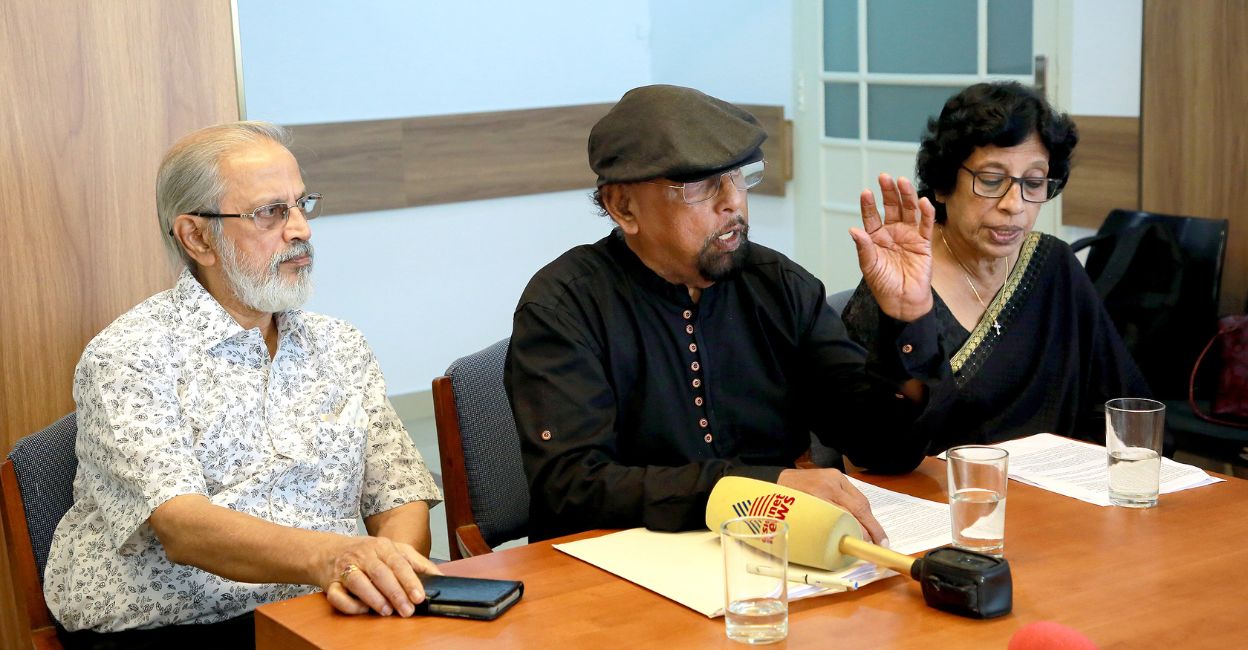Think-tank aiming ‘Better Kochi’ turns 13, remains optimistic despite official apathy

Mail This Article
Kochi: Every month on the last Friday, a group of people in Kochi get together for breakfast. During the one hour they spend around a table, they discuss a slew of issues their dear city has been facing and try to find out professional and scientific solutions for them.
The issues they discuss and try to solve range from potholes and lack of public toilets to climate change. The collective, which turns 13 this year, is aptly named the Better Kochi Response Group (BKRG).
BKRG is a social collective of around 25 prominent personalities in Kochi. Its members include working and retired professionals from diverse fields who share the common cause of a better Kochi.
Ever since it was inaugurated in January 2010, the collective has been brainstorming ways to make Kochi clean, green, healthy, and efficient and acting as a think-tank that supports the authorities with productive inputs. The group had its first intervention in helping the authorities prepare the master plan for the Vyttila mobility hub.

"Often, we invite the decision-makers and experts as guests for our programmes to take up the problems of Kochi and find solutions. They include ministers and the chief minister. We have been closely working with all the mayors since 2010. The government secretaries, consultants from various fields, department heads, planners, and transportation and waste management experts have all been part of our planning discussions. We work as facilitators and catalysts to make authorities implement various projects which benefit the public, mostly using Corporate Social Responsibility funds,” said senior architect S Gopakumar, the current president of the collective, as the members of BKRG, including secretary Sherly Chacko and treasurer R Balachandran, met the media in Kochi on Tuesday.
BKRG was a facilitator in preparing the Detailed Project Report of Vyttila Mobility Hub, and it made a city master plan in association with the CII and the district administration. “The project that followed solved the traffic woes of the city and suburbs to a great extent. The highly-rated Panampally Nagar Walkway was originally visualised by BKRG and then implemented by KMRL,” Gopakumar said.

Apart from Kochi Corporation and KMRL, Greater Cochin Development Authority, Goshree Islands Development Authority, Cochin Smart Mission Limited, and Centre for Heritage, Environment and Development have been accepting BKRG’s suggestions.
BKRG also initiated Kochikkoru Pachakkuda (Green canopy for Kochi), which resulted in planting about 35,000 trees within the city. During Covid-19, the group implemented a home vegetable garden project and a rooftop vegetable garden project.
BKRG also started a powerful anti-hartal movement involving all political party leaders, KMA, TiE, travel operators, trade unions, bus operators, chambers of commerce, and traders.
Official apathy disappoints
The collective, despite remaining optimistic about a better city all these years, had a lot of moments of disappointment too. The members of the collective still can’t digest the fact that the authorities did not pay enough attention to the proposal it had submitted to end the traffic woes at Vyttila Junction. The plan was submitted to the Roads and Bridges Corporation and the PWD before the work on the flyover at Vyttila began. “Though appreciated, the authorities concerned failed to implement the plans and traffic at Vyttila remains a problem,” Gopakumar said. The plan was as simple as ensuring a circular movement of vehicles at the junction just like the model later adapted at Palarivattom flyover,” Gopakumar said.
Ready to build toilets, but no space
The lack of clean public toilets in the city has always been a concern of the social collective. They have been trying to address the problem with a project implemented using old containers. The project is materialised utilising the CSR funds of reputed organisations like Cochin Shipyard, Lions Club and CREDAI. As part of the project, such toilet facilities have been installed on the Collectorate premises, Shipyard Road, Jose Junction and Park Avenue. “The aim is to erect 20 such toilets in the city and CSR funds for five toilets are already available. But the hard fact is that we are not getting space. BKRG was ready to make two toilets on Marine Drive using CSML funds but our proposal was not finally approved. The same is the case at KWA land in Kadavanthara and MG Road Pumping Station premises,” said Gopakumar.
BKRG discussed with Kochi Corporation authorities recently on reviving and managing the existing toilets. The Corporation gave a list of 45 such toilets and BKRG has engaged an agency to conduct a study on the condition of the toilets.
Suggestions from BKRG like vector control, Vyttila Ring Road, dealing with stray dog menace, cold bitumen for repairing potholes, night food street on PT Usha Road, and flea market in Old Venthuruthy Bridge are yet to be implemented.
BKRG also designed foolproof waste bins not accessible to street dogs and birds and with a facility to remove the waste into a bucket by tilling. About 10 of them are erected in Panampally Nagar as a pilot project.

Future Plans
Right now BKRG is in the process of implementing two important projects such as Freego stand-up scooters for police to increase the efficiency of police beats. The proposal was put up before the Commissioner of Police, and he successfully secured six machines through CSML. “We have arranged four more scooters through CSR funds. Police can now start a special squad. The idea is to prevent the menace of drug abuse and goons in remote parts of the city through efficient surveillance,” said Gopakumar.
The swim for life project aims to build smaller swimming pools for government schools to teach students to swim. The first such swimming pool is proposed at the Government Higher Secondary School for Girls in South Junction.
BKRG is also in the process of starting a youth wing to prepare the youth for tomorrow. BKRG is charting out a plan to ease the flood situation in the city and other challenges from climate change.

